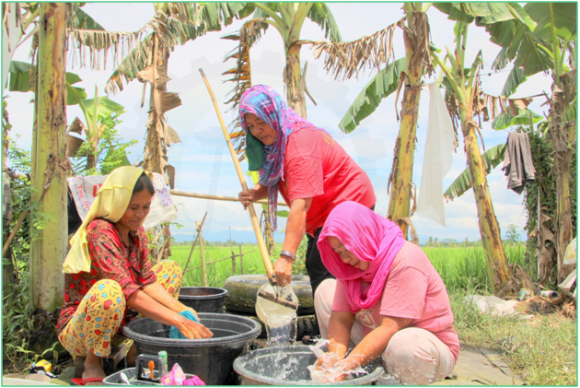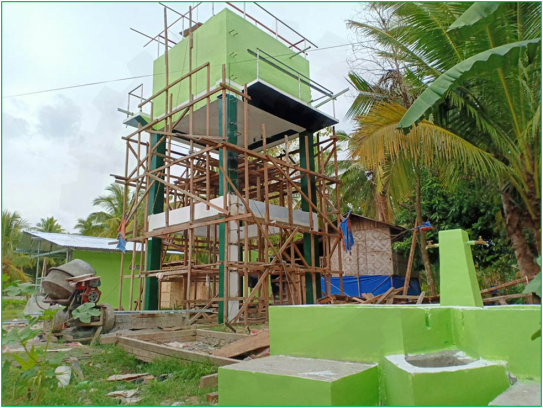How women struggle for safe water in camp communities
MAGUINDANAO - In the remote area of Barangay Palao sa Buto in Datu Paglas town, (CAMP RAJAMUDA), people have to buy safe water from the town center which is eight kilometers away.
Zarima Ulangkaya, a mother of nine shared her struggle and that of the community for clean water for their families.
The family of Zarima rely on farming as source of income like many of other families in the village.
“We have deep well as source of water for our daily life. But it is not safe for drinking. We have to buy from the town center,” Zarima said.
She added that the water from the deep well can only be used for washing dishes and clothes, and for bathing.
“Sometimes, some water source cannot provide usable liquid because of the high salt content, that does not work for soap or detergents,” Zarima said.
For the community, fetching water from the deep well is difficult, but what is harder is the access to safe drinking water.
“A gallon of clean water costs P15.00, that is good for three days for drinking only. For our family, we can buy three gallons but for others who can only buy one gallon, it is difficult because the transportation cost of P100 is more expensive than the cost of drinking water fee,” Zarima explained.
Ortia Taluno from the barangay of Inug-ug in Pikit, North Cotabato has similar story of access to safe water.
“I am also a mother and I am concerned more of the health of my family. We have artisian well (hand-pump) but the water it provides cannot be used for drinking,” Ortia explained.
Ortia and Zarima share the common vision for their families and the whole community to have better access to clean water.
“Carrying water from the distance and hand-pumping is difficult for us women. We may be used to it but we also hope for better life, for our families,” the women said.
Barangay Palao sa Buto and Barangasy Inug-ug are recipients of water system project and construction is on-going (and soon to be completed) through the Mindanao Trust Fund- Reconstruction and Development Project Phase II (MTF-RDP/2).
In Barangay Wago, Lumbayanague, Lanao del Sur (CAMP BUSHRA), Nihaya Abdulgaffur was crying when she was telling a story of how they access water in their community.
“We have to sweat first before we can get water. We have to walk 600 meters from our home to the water source, carrying our stuff, we have to climb then go down because we are in the mountain,” Nihaya shared.
Barangay Wago received a water system project from MTF-RDP/2 in 2019.
Women involvement in camp development project is highly regarded as the MTF-RDP/2 employs community-driven development (CDD), where participation of all sectors in the community is encouraged for consultative and inclusive project approach that is helpful in promoting ownership, transparency, accountability and sustainability.
In 2019, 52 percent of the over 50,000 total number of beneficiaries across the six major camps were women.
The Bangsamoro Development Agency (BDA Inc.) as project implementing unit of the MTF-RDP/2, reported that quality, safety and compliance of the project implementation of water system are considered taking into account the agreed standards and policies of the World Bank- the fund administrator of the Mindanao Trust Fund (MTF).
Selection of the project was decided based on the series of consultations and meetings with the various stakeholders and the Task Forces on Camps Transformation (TFCT- MILF), who are former combatants selected to undergo capacity building to transition their mindset from conflict to development.
MTF-RDP/2 agreed in 2018, with the common aspiration to sustain the momentum of the peace process between the GPH-MILF, this time to focus on the six previously acknowledged major camps of the MILF as informed by the Normalization Annex of the Comprehensive Agreement on the Bangsamoro (CAB).
The project was building on the 10 years of experience of community-driven development (CDD), the Phase I of the MTFRDP (2006-2017).
It now covers selected villages in the six major camps of the MILF (Abubakar, Badre, Bilal, Bushra, Omar and Rajamuda).
In its development plan launched recently, BARMM reported that in 2018, only 55 percent of households in ARMM have access to safe drinking water.


